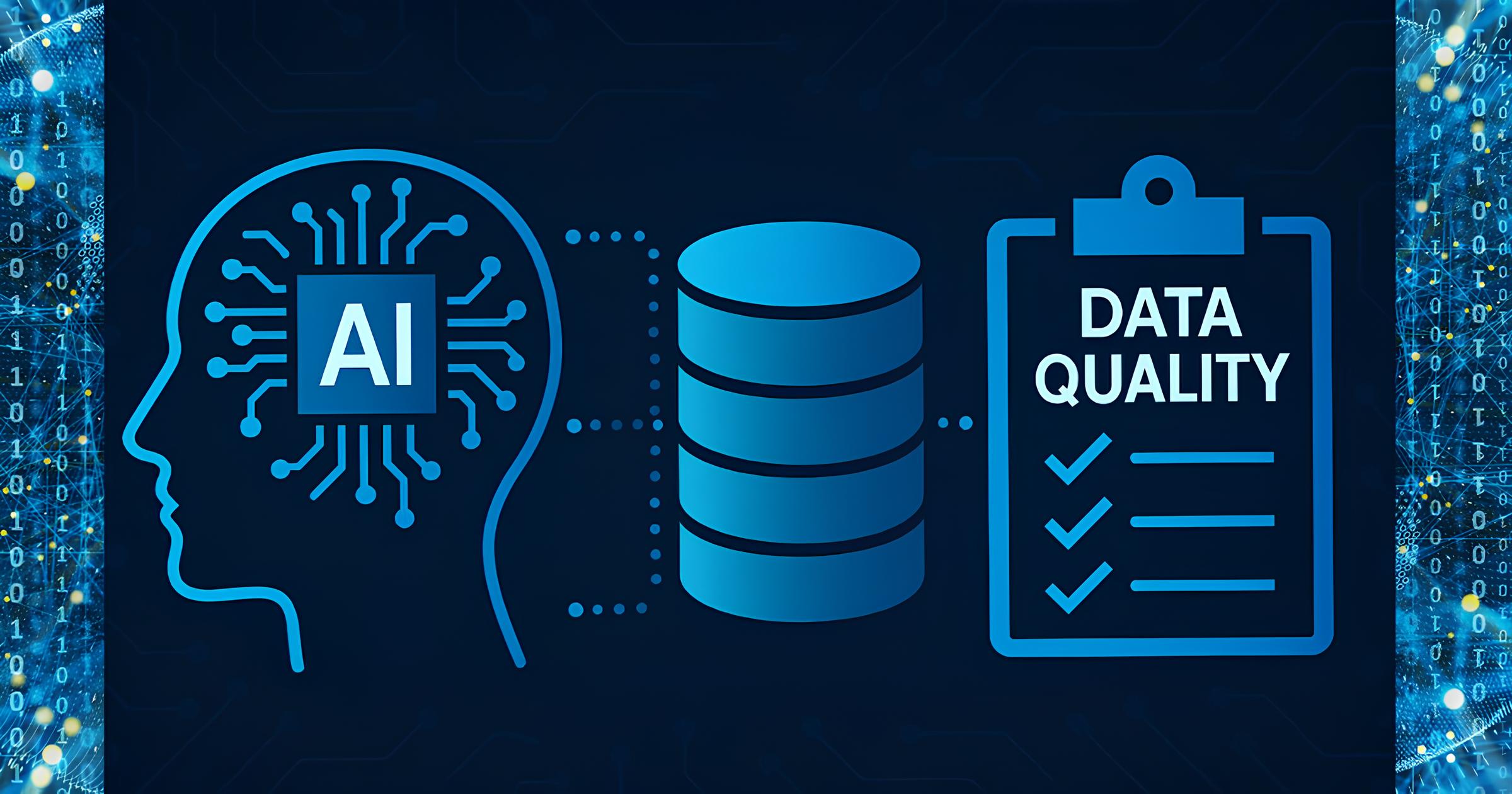Artificial intelligence is reshaping the financial services industry. From fraud detection to hyper-personalized customer engagement, banks are racing to unlock the value of AI, including the newest waves of generative AI and agentic AI. Yet beneath the hype lies a hard truth: without high-quality data, AI will not deliver transformative outcomes.
Banks that fail to master their data pipelines risk turning AI initiatives into costly experiments rather than achieving competitive advantages.
The Challenge of Ensuring Data Quality
Many banks face the same challenge: fragmented, inconsistent, and siloed data. Core banking systems might date back decades, with transaction records, payment histories, and customer profiles data scattered across different platforms, difficult to consolidate.

This fragmentation limits the value of AI in several ways:
- Fraud detection models may misidentify transactions if payment data is missing or delayed.
- Credit risk scoring may be affected if customer histories are incomplete.
- Customer service AI models may underperform if they rely on outdated or inconsistent records.
In each case, the AI model is not inherently flawed; rather, it is starved of the complete and accurate data it needs to function. The result is hesitation to scale – banks pilot AI initiatives in controlled environments, but rollout across the enterprise is delayed. Innovation becomes a series of costly proofs-of-concept instead of a business transformation.
The “why” is simple: AI is only as strong as the data behind it.|
The Vendor Mirage
The rapid rise of AI vendors and fintech has created the impression that buying the right solution is enough. Banks are pitched sophisticated models, large language platforms, and ready-to-use AI tools that promise rapid results.
But success does not live in the vendor’s product alone. AI, whether generative or predictive, is like an engine, it only runs as well as the fuel it receives. If the data is incomplete, mislabeled, or locked in silos, no vendor can deliver consistent value.
Hard Work of Data Readiness
Building AI-ready data is not glamorous. It requires deep, ongoing investment in:
- Data consolidation – breaking down silos across payments, loans, customer service, and compliance.
- Data governance – defining ownership, accountability, and policies for data quality.
- Data traceability – ensuring that every data point can be tracked back to its source.
- Real-time pipelines – enabling AI systems to work with live, continuously updated information.
This effort is daunting, especially for large institutions with decades of legacy infrastructure. Yet it is far from impossible. Forward-looking banks are already transforming data chaos into strategic assets by committing resources and talent to data engineering, quality assurance, and governance frameworks.
The payoff is clear: once the data foundation is strong, AI becomes not just a tool but an accelerant for growth.
Regulatory Pressures and Trust
Financial services are among the most heavily regulated industries. The emergence of AI raises new compliance challenges, including explainability, auditability, and fairness in automated decisions.
Here, again, data quality is the anchor. Regulators expect banks to demonstrate why a loan was denied, why a transaction was flagged, or how a customer recommendation was made. Without clear, accurate, and traceable data, these explanations collapse.
Moreover, customers will only trust AI-driven banking services if outcomes are consistent and transparent.
The Future: From Experiments to Transformation
The next frontier, agentic AI, will allow autonomous AI agents to take actions, not just make recommendations. For banks, this could mean automated portfolio rebalancing, real-time fraud blocking, or proactive customer engagement.
But the risks grow with the power. An AI agent making decisions based on flawed data could amplify mistakes at scale, damaging both customers and institutions. Without rigorous data governance, the promise of agentic AI becomes a liability.
The message is clear: AI maturity cannot outpace data maturity.
Data Defines the Winners
The banking sector is on the brink of an AI revolution, but the winners will not be defined by who buys the most sophisticated AI tools. Instead, they will be defined by who masters their data pipelines.
The key takeaways:
- AI is only as strong as the data behind it.
- Vendors provide tools, but data stewardship is an internal responsibility.
- High-quality, unified data is essential for compliance, trust, and scale.
- Continuous investment in data platforms is the true differentiator.
Banks that embrace this discipline will move beyond experiments, setting new standards for resilience, agility, and leadership in financial services. Those who ignore it risk sinking millions into AI projects that never deliver.
UHURA IS AN AI PLATFORM THAT READS AND UNDERSTANDS COMPLEX DOCUMENTS JUST AS HUMANS DO. WE HELP BUSINESSES SPEED UP THE REVIEW AND DECISION-MAKING PROCESSES BY USING AI TO UNCOVER VALUABLE INSIGHTS FROM DOCUMENTS, REPORTS, CONTRACTS AND AGREEMENTS. WE USE CUTTING-EDGE AI, INCLUDING IMAGE PROCESSING, NATURAL LANGUAGE PROCESSING AND MACHINE LEARNING TECHNOLOGY, TO BRING UNPRECEDENTED ACCURACY AND SHORTEN DOCUMENT PROCESSING TIME FROM HOURS TO SECONDS
